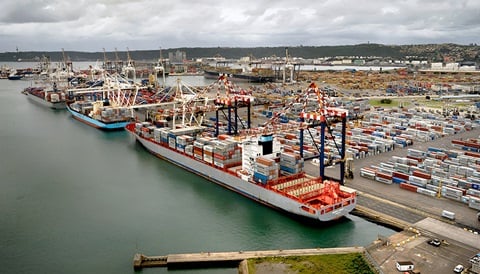South Africa to offer remote working visas
The new class of visa aims to attract skilled, high-spending workers

If you are fed up with the unchanging hot and humid tropical weather and would like to work remotely from a cool, dry, and beautiful place, try Cape Town. South Africa may be about to join Mauritius and Seychelles in offering digital nomads a long stay work visa. South African authorities have reportedly begun a process of introducing a new visa category that would allow foreigners to work legally in the country for an extended period of time. The city of Cape Town – which is likely to benefit most from the scheme – is pushing the initiative. Its official statistics show that the average “working” tourist typically spends ZAR 50,000 (US$3,300) during a stay in South Africa. Such a spending has a wider knock-on effect on the local economy as long-staying remote workers tend to stimulate the local economy even more than short-term tourists. An informal lobby group has been established to engage national and provincial government in South Africa to expedite the move. No timeframe, however, has been set for the introduction of the new visa category. Attracting skilled workers is a cornerstone of President Cyril Ramaphosa’s government.
Recognition of remote workers and “digital nomads” has increased significantly since the onset of the coronavirus pandemic. The United Arab Emirates (UAE) was among the first to provide legal status for such remote workers. It has introduced a one-year visa for virtual workers. Mauritius and Seychelles followed soon after. Rwanda has also mooted the idea.
For host countries, there is a unique self-filtering dynamic at play. According to the US Census Bureau, 73% of the highest earning households were able to switch to remote working during the pandemic, while the figure was only 12.7% for lower-income households. Those seeking remote working visas, therefore, are considered “desirable visitors” – people with greater spending means and existing income streams. Attracting such ‘nomads’ not only boosts revenues in host communities, but can also play a role in skills transfer. This happens when remote workers are given the opportunity to engage with locals in settings such as shared workspaces.
Remote workers, for their part, have an opportunity to act as cultural ambassadors for their home countries, extending soft influence during their stay abroad. The effects of this should not be underestimated, as highlighted by the success of Thailand’s “gastro-diplomacy”. For the Southeast Asian country, the rationale behind financially supporting Thai restaurants abroad was that the government could leverage culinary heritage to enhance the national brand. It was so successful that Taiwan and South Korea have followed suit.
Lastly, the opportunity for Asian firms of remote working visa regimes lies in being able to deploy effective in-country representatives abroad, playing the same role as one would expect from a traditional expatriate but with far less regulatory red tape, cost, and inconvenience on the worker. Careful use of remote working visas gives these firms the prospect of establishing a presence before competitors, understanding the local operating environment first-hand, and making a “soft landing” before committing more extensively to the country in question. According to surveys cited by Forbes, allowing for remote work is a major draw card to attracting new talent. Uniquely for Singapore firms, there also a potential to take advantage of the time zone arbitrage as well. A Singaporean digital nomad living and working in Cape Town, for example, will sit broadly within the European time zones.
References
‘How South Africa’s new visa could work’, Business Tech, 14 February 2022
‘Digital nomads – Remote work visas for SA?’, Tralac, 31 May 2021
‘Work remotely from Dubai’, Visit Dubai, 12 February 2022
‘Premium visa’, Mauritius Now, 12 February 2022
‘Why not work from paradise? Seychelles luring remote workers with special permit’, Cape Talk, 16 February 2022
‘How the Thai Government Helps Identify Authentic Thai Food’, The Manual, 18 November 2021
‘5 Statistics Employers Need To Know About The Remote Workforce’, Forbes, 10 February 2022







